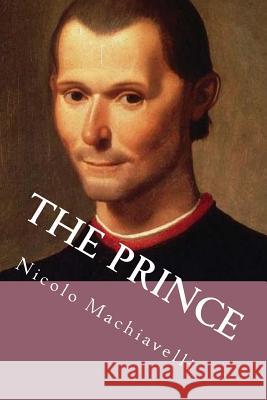The Prince » książka
The Prince
ISBN-13: 9781539725541 / Angielski / Miękka / 2016 / 194 str.
The Prince is a political treatise written in the early sixteenth century by Nicolas Machiavelli, the Florentine politician and writer, which shows how to become prince and remain, analyzing examples of ancient history and of Italian history at the time. Because the book did not give moral advice to the prince as the classical treatises addressed to kings, and instead he advised in some cases actions contrary to good morals, he was often accused of immorality, leading the adjective "Machiavellian." However, the book has had a great posterity and was praised and analyzed by many thinkers. Writing circumstances From 1498 to 1512, Machiavelli was employed as a civil servant in the Florentine Republic, especially as legate from foreign powers such as France, Germany and Cesare Borgia. In November 1512, a few months after the establishment of a monarchy in Florence by the Medici, he forfeits his office; in December after the discovery of a republican conspiracy by his friends, he was imprisoned and then exiled to his farm Sant'Andrea in Percussina. There he wrote the Prince. The writing is almost completed in December 1513, as evidenced by the letter Machiavelli address to his friend Francesco Vettori Nicolas Machiavelli (Italian: Niccolo di Bernardo dei Machiavelli, Niccolo Machiavelli was an Italian humanist thinker of the Renaissance philosopher, political theorist, history and war, born May 3, 1469 in Florence, Italy and died June 21, 1527 in this city. Machiavelli has spawned several words in French: "Machiavellianism" and its derivatives, which refer to a cynical politician interpretation of the work of Machiavelli and "Machiavellian" which refers directly to concepts developed by Machiavelli in his work. Born in Florence, in a noble family, Nicolas Machiavelli is the son of Bernard Machiavelli, papal treasurer in Rome and a doctorate in law, and Bartolomea de 'Nelli. After graduation, it is a first time candidate for a position of the Florentine administration February 19, 1498 but is not retained. After the condemnation to the stake of Girolamo Savonarola, he was appointed secretary of the Second Chancery and officially took his post on June 19, 1498. It leads to the title of diplomatic missions in Italy and abroad, forging an opinion on the political mores of his time. He writes diplomatic dispatches, collected under the title Diplomatic Relations, as well as reports (Reports things from Germany, Report on the things of France). In 1512, Florence disorders condemn him to exile. Then he starts writing the Prince in which we find the beginnings of his political design"
Zawartość książki może nie spełniać oczekiwań – reklamacje nie obejmują treści, która mogła nie być redakcyjnie ani merytorycznie opracowana.











